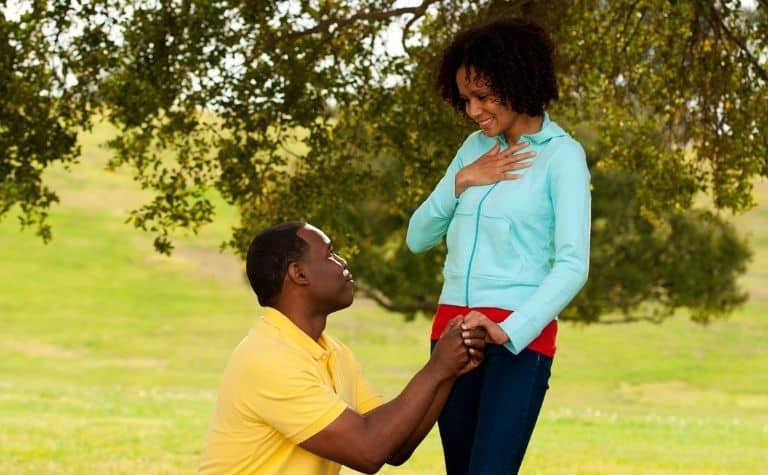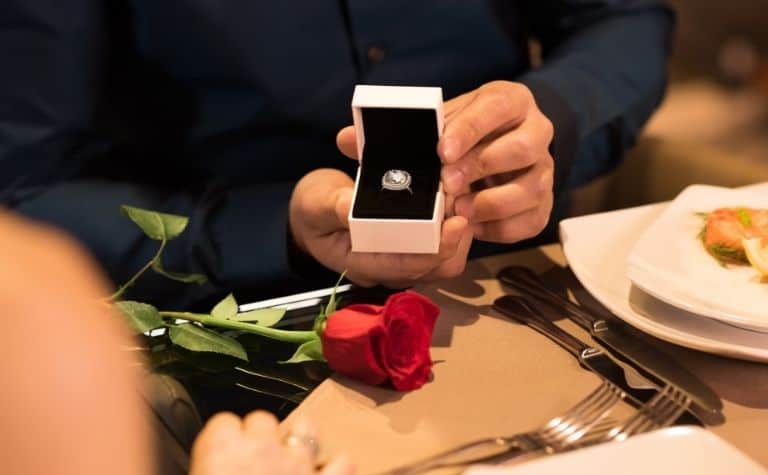Spiritual compatibility is an essential factor that many people think about when considering marriage. Does their potential spouse believe in God, attend church, and read the Bible? Denominations and traditions are important to many people as well. For example, pentecostalism and the Baptist tradition are two prominent branches of Protestant Christianity, but are they compatible with their members getting married?
Pentecostals and Baptists can marry. Scripture doesn’t forbid it. Neither does either tradition. Though marriage between a Pentecostal and Baptist isn’t sinful, it does call for using wisdom as couples need to discuss what their marriage, church attendance, and parenting will look like in light of their differences.
How will a Pentecostal and a Baptist marrying each other affect their standing in their respective churches? Though the traditions have important similarities, what are the differences between them that should people consider? Are Pentecostals and Baptists more compatible with other traditions? Keep reading to learn the answers to these questions and others.
Also, see Pentecostal vs. Baptist: What’s the Difference? to learn more.

Pentecostal and Baptist Marriage: Church Standing
Strictly speaking, “Pentecostalism” doesn’t describe a denomination but a belief system that certain denominations embrace. Two of the largest Pentecostal denominations are the Assemblies of God and the International Church of the Foursquare Gospel. (Also see Can Pentecostals Marry Catholics?)
Similarly, though the term “Baptist” is conventionally used to describe a specific Protestant denomination, it’s more accurate to refer to the “Baptist tradition,” which includes dozens of denominations. For example, two of the largest Baptist denominations in the world are the Southern Baptist Convention and the National Baptist Convention.
How does marriage between a Pentecostal and Baptist affect their status at each church? Members of an Assemblies of God church or a Southern Baptist church won’t lose their membership or “good standing” because they married a Christian outside their tradition.
It’s possible that a small denomination or church claiming Pentecostal or Baptist affiliation may have a different practice. Still, it would be rare, unorthodox, and out of step with the tradition as a whole.
How could a person lose their membership even if they are in good standing? In addition to doctrinal issues (more below), there are practical matters to consider. For example, it’s unusual for a couple to commit to different churches, regardless of their denominational or theological tradition.
Though a Pentecostal or Baptist wouldn’t have their membership taken from them, one spouse will likely need to relinquish their commitment to their church to be fully invested in their spouse’s church. (Also see What Is An Ex-Pentecostal?)

Pentecostalism and the Baptist Tradition: Differences to Consider
Doctrinally, Pentecostalism and the Baptist tradition are more compatible than many other combinations. For example, both traditions are Protestant. But, most of the time, for two people committed to their church, marriage between a Protestant and a Catholic can present more significant challenges.
How does the Baptist tradition enable compatibility? The core commitments of the Baptist tradition begin with the core doctrines of the Christian faith, like the Trinity, the inspiration and authority of Scripture, and the death and resurrection of Jesus Christ as the atonement for sin. (Pentecostals have the same core convictions.)
The secondary and distinguishing features of the Baptist tradition include the conviction to baptize adults (not children), which is often referred to as “Believer’s Baptism,” the autonomy of the local church, and the separation between church and state. (The Pentecostal tradition also embraces these convictions.)
As long as a person affirms these doctrines, they can hold different positions on various other theological issues and still be Baptist. This fact makes the Baptist tradition one of the most theologically diverse traditions in the history of Christianity. (Also see Are Pentecostals Allowed to Dance?)
Can a person be Calvinist or Arminian and still be Baptist? Yes. As long as the person affirms the core doctrines of the Christian faith and supports the Baptist tradition’s unique convictions, they can believe in predestination, limited atonement, and eternal security (i.e., Calvinists) — or not (i.e., Arminians). It’s important to note that Arminianism is one of the core theological commitments of the Pentecostal tradition.
Can a person speak in tongues and still be a Baptist? Yes. Some Baptists, along with Pentecostals, believe that baptism of the Holy Spirit occurs after conversion. Most Protestants believe it happens at the time of conversion.
Some Baptists, along with Pentecostals, believe that speaking in tongues is the initial evidence of the baptism of the Holy Spirit. However, many non-Pentecostal Christians don’t believe speaking in tongues is the only evidence of Spirit baptism.
Can a person be a “Pentecostal Baptist” or a “Baptist Pentecostal”? Though people don’t commonly use these terms, it’s theologically possible. A person can have Pentecostal beliefs and be a member of Baptist churches that welcome Christians with such views.
Likewise, a person that has historically attended Baptist churches can become a member of a Pentecostal church if they affirm its beliefs about Pentecostal theology.
While the Baptist tradition welcomes people with various theological positions, it’s important to note that individual Baptist denominations or churches may not. (Also see the full article What Is a Pentecostal Church?)
Because Baptist denominations and churches are independent, some have included Calvinist or Arminian theology and continuationist and cessationist theology (more below) in their doctrinal statements, which people must affirm to become church members.
Because there is significant diversity among Baptist churches, it’s wise to consult a church’s website or pastor to discover their particular convictions.

Speaking In Tongues and Other Differences
Pentecostals and Baptists have more in common than not. They are each Protestant tradition and affirm the same core doctrines of the Christian faith. The traditions are also in agreement on secondary doctrines like Believer’s Baptism.
Generally, the biggest differences between the traditions are spiritual gifts, baptism of the Holy Spirit, speaking in tongues, and miraculous gifts.
| Pentecostalism | Baptists | |
|---|---|---|
| Spiritual gifts | Pentecostals are continuationists, not cessationists. Continuationists (from the word “continue”) believe all spiritual gifts mentioned in the New Testament are fully operational today. Cessationists (from the word “cease”) don’t believe that. | Baptists can be either, but most are cessationists. Cessationists believe that some spiritual gifts, like speaking in tongues, were only to establish the church and accredit the Apostles in the first century. |
| Baptism in the Holy Spirit | A central belief for Pentecostals is that baptism in the Holy Spirit occurs sometime after conversion. | Most Baptists, and most other Protestants, believe baptism in the Holy Spirit occurs at the time of conversion. |
| Speaking in tongues | Another central belief for Pentecostals is that speaking in tongues is the initial evidence of being baptized in the Holy Spirit. | Cessationist Baptists don’t believe speaking in tongues is for today. Continuationist Baptists don’t necessarily believe speaking in tongues is the only initial evidence for baptism in the Holy Spirit. |
| Miraculous gifts | Pentecostals affirm the present-day use of so-called miraculous gifts like healing, words of knowledge, speaking in tongues, and the interpretation of tongues. | Continuationist Baptists agree with Pentecostals about miraculous gifts, but cessationist Baptists don’t. |
A Pentecostal and Baptist can marry and glorify God by doing so. They can also retain good standing in their church. For those considering such a union, there is wisdom in studying Scripture, diligent prayer, and seeking wisdom through trusted counselors to determine God’s will.
Also, see Do Pentecostals Celebrate Christmas? to learn more.
References:
[1] Source
[2] Source
[3] Source
Related Questions
Many people know that the terms "Pentecostal" and "evangelical" are associated with Christianity, but they aren't sure exactly how or what the difference is between them. The words may refer to a set...
The Pentecostal and Baptist traditions are two of the most prominent branches of Protestant Christianity. They have many beliefs and practices in common and have more similarities than differences....
